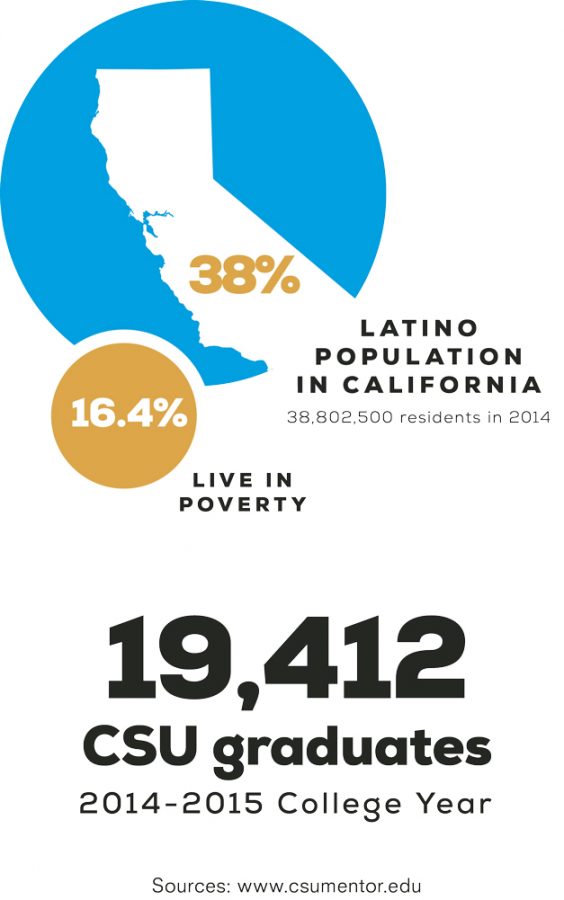The first generation to graduate
August 17, 2016
I am the first member of my Mexican family to go to college.
I am 21 years old and come from a family of nine. I have six older brothers who were born in Mexico but I was born in the US. When I graduate next spring, it will be a great accomplishment, not only for me, but for my parents and my whole family.
Latino families make up 38 percent of the state’s population, according to a July 2015 California Census Bureau report. Of those families, 16.4 percent live in poverty. We are one of the millions of low-income Mexican families in California.
My parents came to this country about 30 years ago to give my brothers and me a better future and a better life. They spent three decades going back and forth between both countries, but have stayed here permanently since the early 2000s. They are now in the process of obtaining their American residence, a step that precedes earning full citizenship.
Three of my six brothers finished school in Mexico but the other three attended American schools and learned English in middle school and high school, which was difficult. Two of them obtained their high school diplomas.
I have been educated in the United States since preschool, so learning English was not an obstacle for me. I graduated high school with a 3.84 GPA and am now a rising senior at Cal State East Bay.
In many Mexican families, parents take great pride in their kids attending college. They are accomplishing the goals their parents did not achieve and the parents in turn feel successful. I come from a big family: More than 15 uncles and many cousins live close to us. I am my family’s pride and joy, so there is no room for me to fail to obtain my degree. Earning a bachelor’s degree is not just my goal; it’s everyone’s goal.
There are more and more students like me in this country. In 2014, 35 percent of Hispanics aged 18 to 24 were enrolled in a two or four-year college, a 13 percent increase from 22 percent in 1993, according to the Pew Research Center, a nonprofit, nonpartisan research organization.
When I was in high school I did not think of attending a four-year university right away. My goal at that time was to work, maybe attend a community college and then transfer. I wanted to make money to help out my family.
I was involved in school clubs and other extracurricular activities at San Lorenzo High School, and graduated from there with honors. A high school counselor encouraged me to apply to CSU and UC schools. She knew I would get accepted because I had good grades and was involved in extracurricular activities. Also, because I was from a low-income family, I would likely be eligible for scholarships and financial aid.
During my senior year of high school, I applied and was accepted to four CSU’s. I also received financial aid, which now pay for all my classes at CSU East Bay. I am thankful for the counselor’s encouragement because I can now say that I am the first in my family to attend college. I plan to receive a communications degree, hopefully by spring 2017.
As of January, 42.5 percent of first-year student enrollment at CSU East Bay is Hispanic/Latino, according to the CSU Mentor website. Of all the degree-seeking undergraduates, 28.6 percent are Hispanic/Latino, the highest ethnicity group at Cal State East Bay.
I feel proud to obtain a degree, particularly right now, because it gives me the chance to show that I am not what Donald Trump has said about Mexicans throughout his presidential campaign. I am not a rapist or drug dealer; I am a student that wants to get an education and give my family a better future, just like anyone else.
I want my parents to feel successful too, and the best way I can do that is by graduating college. It shows our community that being Mexican does not mean we cannot also be successful. As the first to attend a university, I am setting the example for my younger family members that they can also go to college and obtain a degree.







